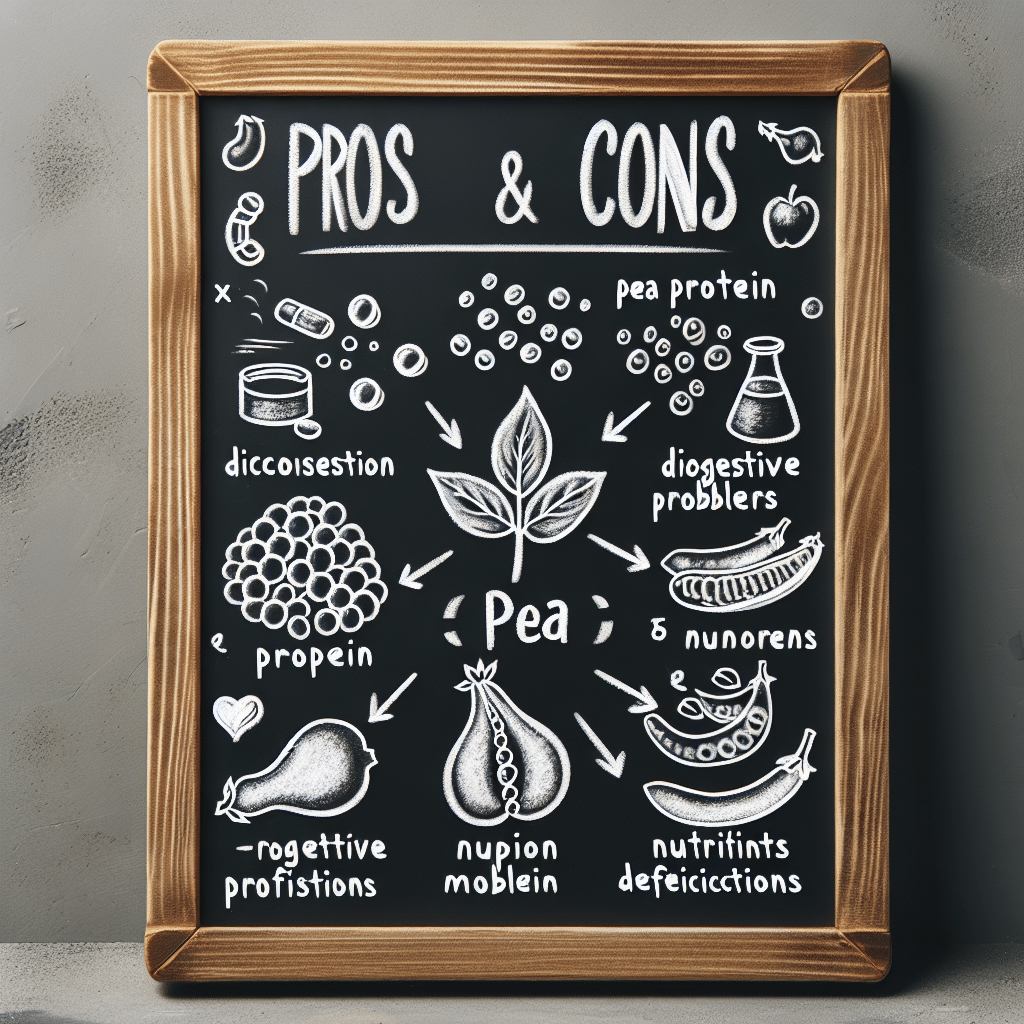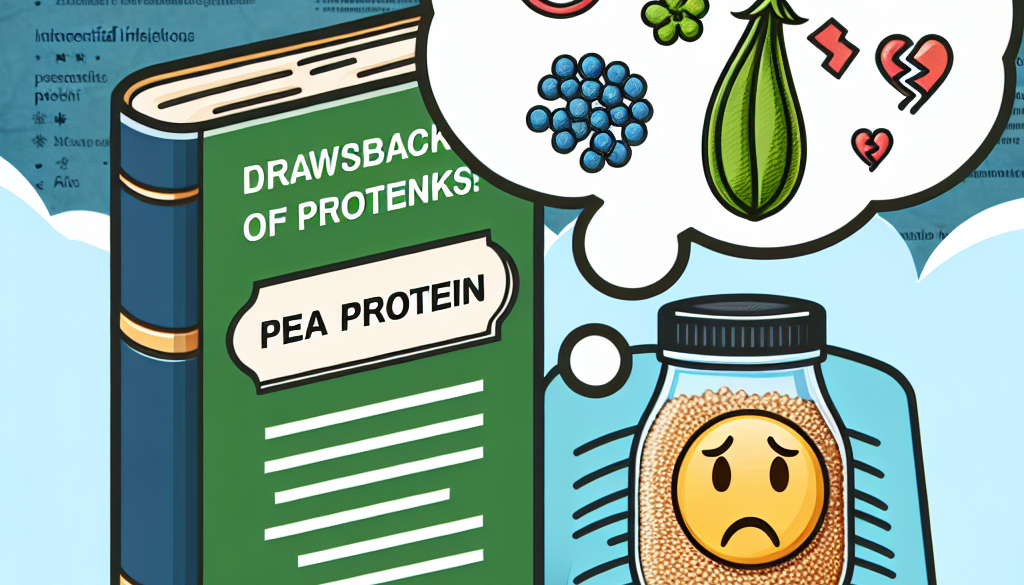What Is The Drawback Of Pea Protein? The answer
Table of Contents
- Pea Protein: Understanding Its Drawbacks and Limitations
- 1. Incomplete Amino Acid Profile
- 2. Digestibility Issues
- 3. Taste and Texture Concerns
- 4. Potential for Allergies and Sensitivities
- 5. Environmental and Sustainability Concerns
- 6. Nutrient Absorption and Bioavailability
- 7. Heavy Metal Contamination
- 8. Limited Research on Long-Term Effects
- Conclusion: Weighing the Pros and Cons of Pea Protein
- Discover ETprotein’s High-Quality Protein Products
Pea Protein: Understanding Its Drawbacks and Limitations

Pea protein has gained popularity as a plant-based alternative to animal-derived proteins, especially among vegans, vegetarians, and individuals with dietary restrictions. Derived from yellow split peas, this protein source is celebrated for its high protein content, hypoallergenic properties, and sustainability. However, like any food product, pea protein is not without its drawbacks. In this article, we will explore the potential limitations and concerns associated with pea protein consumption.
1. Incomplete Amino Acid Profile
One of the primary concerns with pea protein is its amino acid profile. While it contains all nine essential amino acids, it is not considered a complete protein because it has lower amounts of certain amino acids, such as methionine and cysteine. This can be a drawback for those relying solely on pea protein to meet their protein needs, as it may not support optimal muscle growth and repair compared to complete protein sources like whey or casein.
2. Digestibility Issues
Another potential issue with pea protein is its digestibility. Some individuals may experience gastrointestinal discomfort, such as bloating, gas, or stomach cramps, when consuming pea protein. This can be attributed to the presence of antinutritional factors like lectins and phytates, which can interfere with the absorption of nutrients and cause digestive issues.
3. Taste and Texture Concerns
The taste and texture of pea protein can also be a drawback for some consumers. Pea protein powders may have a distinct earthy or beany flavor that is not appealing to everyone. Additionally, the texture can be gritty or chalky, which may not blend well in smoothies or other recipes, potentially limiting its versatility and palatability.
4. Potential for Allergies and Sensitivities
Although pea protein is often marketed as hypoallergenic, there is still a risk of allergies or sensitivities. Individuals with a history of food allergies should be cautious when trying new protein sources, including pea protein, as it could trigger an allergic reaction in susceptible individuals.
5. Environmental and Sustainability Concerns
While pea protein is generally considered more sustainable than animal-based proteins, there are still environmental concerns to consider. The production of pea protein involves farming, which can contribute to soil depletion, water usage, and the use of pesticides and fertilizers. These factors can impact the overall sustainability of pea protein production.
6. Nutrient Absorption and Bioavailability
The bioavailability of nutrients in pea protein may be lower compared to other protein sources. The presence of antinutritional factors can inhibit the absorption of minerals such as iron, zinc, and calcium. This could potentially lead to deficiencies if pea protein is a major protein source in one’s diet without proper nutritional planning.
7. Heavy Metal Contamination
Some pea protein powders have been found to contain traces of heavy metals, such as lead, arsenic, and mercury. These contaminants can accumulate in the body over time and pose health risks. It is important for consumers to choose high-quality pea protein products that have been tested for heavy metals and other contaminants.
8. Limited Research on Long-Term Effects
Finally, there is limited research on the long-term effects of consuming pea protein. While short-term studies have shown it to be a viable protein source, more research is needed to understand its impact on health over an extended period, especially when consumed as a primary protein source.
Conclusion: Weighing the Pros and Cons of Pea Protein
In conclusion, while pea protein offers a plant-based alternative to traditional animal proteins and has several health and environmental benefits, it is not without its drawbacks. Consumers should be aware of its incomplete amino acid profile, potential digestibility issues, taste and texture concerns, allergy risks, environmental impact, nutrient absorption challenges, possible contamination, and the need for more long-term research. By understanding these limitations, individuals can make informed decisions about incorporating pea protein into their diets and ensure they are meeting their nutritional needs through a balanced and varied diet.
Discover ETprotein’s High-Quality Protein Products
If you’re looking for a reliable source of high-quality pea protein and other plant-based proteins, ETprotein is a company worth considering. ETprotein offers a range of organic bulk vegan proteins, including pea protein, that are characterized by their neutral taste, non-GMO, and allergen-free attributes. With a commitment to purity and quality, ETprotein’s products cater to various industries and meet the needs of consumers looking for sustainable and healthy protein options.
About ETprotein:
ETprotein, a reputable protein and L-(+)-Ergothioneine (EGT) Chinese factory manufacturer and supplier, is renowned for producing, stocking, exporting, and delivering the highest quality organic bulk vegan proteins and L-(+)-Ergothioneine. They include Organic rice protein, clear rice protein, pea protein, clear pea protein, watermelon seed protein, pumpkin seed protein, sunflower seed protein, mung bean protein, peanut protein, and L-(+)-Ergothioneine EGT Pharmaceutical grade, L-(+)-Ergothioneine EGT food grade, L-(+)-Ergothioneine EGT cosmetic grade, L-(+)-Ergothioneine EGT reference grade and L-(+)-Ergothioneine EGT standard. Their offerings, characterized by a neutral taste, non-GMO, allergen-free attributes, with L-(+)-Ergothioneine purity over 98%, 99%, cater to a diverse range of industries. They serve nutraceutical, pharmaceutical, cosmeceutical, veterinary, as well as food and beverage finished product distributors, traders, and manufacturers across Europe, USA, Canada, Australia, Thailand, Japan, Korea, Brazil, and Chile, among others.
ETprotein specialization includes exporting and delivering tailor-made protein powder and finished nutritional supplements. Their extensive product range covers sectors like Food and Beverage, Sports Nutrition, Weight Management, Dietary Supplements, Health and Wellness Products, and Infant Formula, ensuring comprehensive solutions to meet all your protein needs.
As a trusted company by leading global food and beverage brands and Fortune 500 companies, ETprotein reinforces China’s reputation in the global arena. For more information or to sample their products, please contact them and email sales(at)ETprotein.com today.














